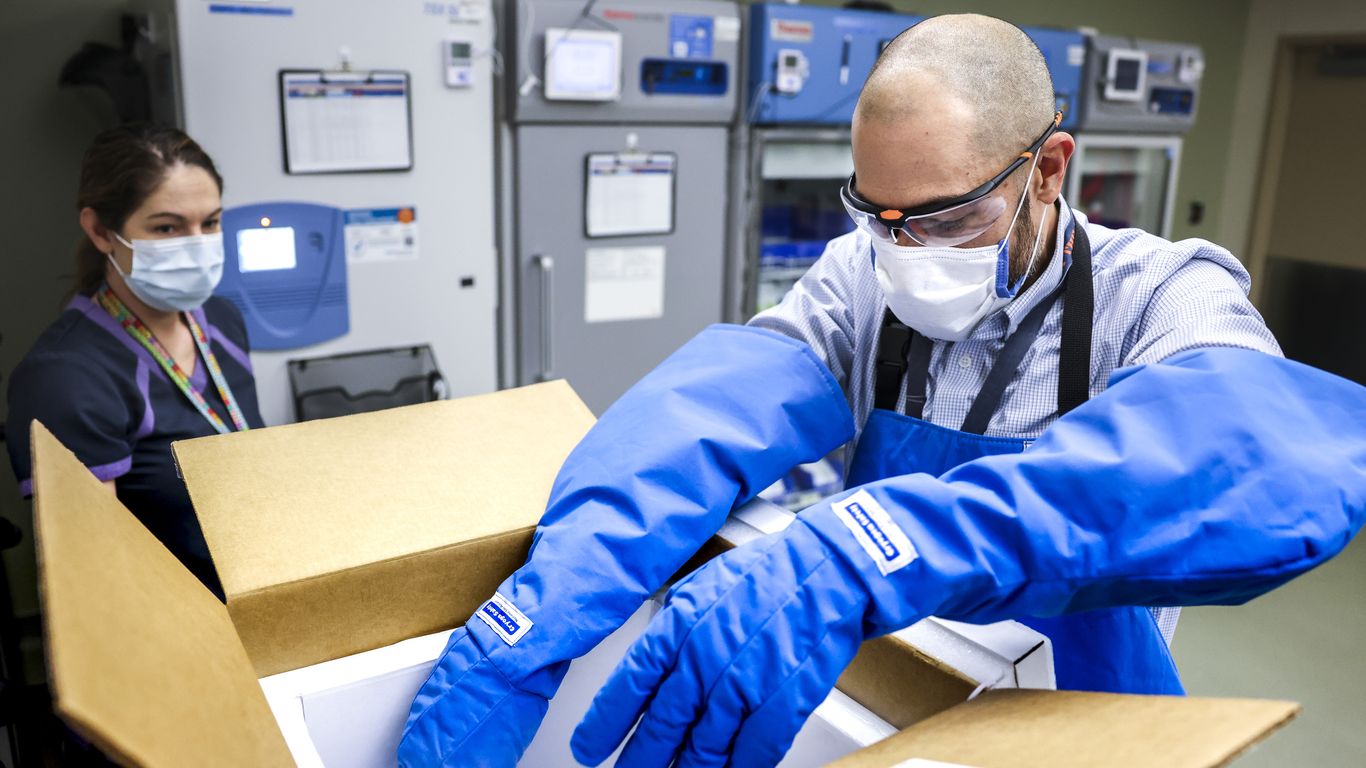Local health officials are turning to online services like Eventbrite to improvise distribution schemes for the COVID-19 vaccine in the absence of federal support or a national plan.
Why it matters: Millions of lives, along with the country’s economic recovery, depend on rapid and successful vaccine implementation. But as people search for scarce information about vaccine availability and delivery processes, the lack of coordinated communication risks opening up an information vacuum – into which misinformation can easily leak.
Driving the news: In Florida, several counties are using the Eventbrite event platform, a platform known for selling concert tickets and coordinating happy hours, to schedule COVID-19 vaccine appointments.
Be smart: Local governments, already overwhelmed by the crisis and recovering from Congressional delays in passing the latest COVID-19 relief bill, often lack the resources needed to manage vaccine communication and coordination.
- Many sought help from both online providers and pharmacies, which tend to have better access to consumer data and are able to deploy information quickly and in a personalized manner.
- Once people receive their first dose of Pfizer two-dose vaccine, for example, pharmacies will be key players in helping to ensure they take their second dose three weeks later.
- “It’s kind of a drop in pharmacy,” says Chris Haynes, professor of political science at the University of New Haven. “There was no application developed for the federal or state governments to ensure that the vaccine’s launch was tracked. All of this should have been planned months ago ”.
The big picture: Historically, the federal government has established systems to help local governments distribute emergency information, such as tornado and hurricane warnings that are broadcast on local television, as well as localized text alerts.
- But the government has not created emergency communication systems to transmit localized information about the vaccine, forcing citizens to turn to less reliable sources of information online.
- “We will have to think of systems that will reach people when they need highly specific information – and, in this case, time sensitive,” said Kathleen Hall Jamieson, director of the Annenberg Public Policy Center at the University of Pennsylvania. “We need to institutionalize this structure and keep it under control.”
- “The fact that we don’t have it yet is a real accusation,” she told Axios. “We should have thought of that before.”
What to watch: The lack of coordinated messages around the launch of the vaccine has left millions of people looking for answers online and on social networks, opening space for confusion and misinformation.
- Experts fear that major technology platforms, already recovering from electoral problems of misinformation, are not equipped to help examine and verify information on vaccine distribution.
Of importance: Almost all of the experts that Axios spoke with said that the best way to deal with this problem would be through a massive awareness campaign supported by the federal government, educating consumers about the importance of getting a vaccine and directing them to some kind of federal directory with links to verified local resources.
- Since the US does not have a centralized database of citizen addresses and health records, this is probably the quickest thing the federal government can do to support local governments with the roll out at this time.
Our thought bubble: Developing a vaccine was a difficult problem, but distributing it should not be in the same category, and the United States had months to prepare a plan.
What is the next: The next Biden government is promising a “total government response” after Jan. 20, according to the Washington Post.
